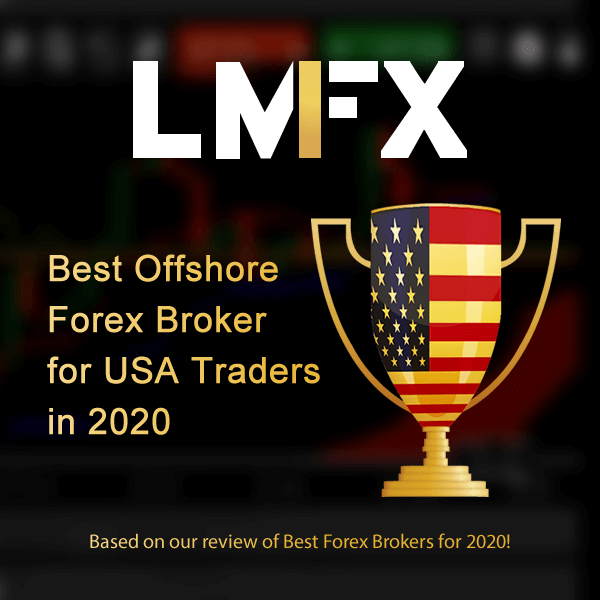To Search for and compare Forex Brokers, use the Advanced Search feature to refine your search results. View the brokers profile to see a detailed list of their features.
cTrader Brokers
cTrader is a relatively new trading platform developed by Cyprus based Spotware Systems Ltd. Since its inception in 2010, Spotware has invested heavily in developing one of the most feature-rich trading software platforms for Forex and CFD brokerage firms.
Since inception, cTrader had to face stiff competition from established market leaders in trading platform solution providers like MetaQuote. However, the management of cTrader has focused on providing a complete trading platform that offers an easy learning curve and packed it with ample features to support even the most avid and experienced traders. As a result, cTrader has gained popularity and an ever-increasing number of Forex and CFD brokers are embracing this software platform.
Furthermore, cTrader has built the platform to cater to the growing number of ECN and STP model brokers. In fact, cTrader has a few key policy issues, like requiring brokers to connect to at least one reputed liquidity provider, making it impossible for bucket shops and dishonest brokers to operate the trading platform. Hence, a lot of professional traders have started to appreciate the transparent and feature-rich cTrader platform over other software suits like MetaTrader or in-house developed web platforms.
Distinguishing Features of the cTrader Trading Platform
When it comes to features, cTrader’s core technology platform has got you covered. Spotware has developed the software platform without any order queue. It means that multiple orders triggered will be placed in the market at once and it happens within milliseconds. This distinguishing feature is a godsend for short-term traders who trade during high-velocity market conditions, such as during major News releases.
The second feature that makes cTrader stand out against competition is the ability to provide fully transparent Level II data to traders. The Level II price and volume information are shown on the platform are fetched directly from liquidity providers and orders are filled against the full order book, by calculating Volume Weighted Average Price (VWAP). This method of order placement is regarded as the most transparent way to fill client orders in the interbank market.
Anyone who has traded with old school platforms like MetaTrader 4 will appreciate how thoughtful the order management process is with cTrader. cTrader’s Advanced Take Profit feature allows Forex traders to scale out of a position at multiple levels.
When it comes to margin class and stop-outs, other trading platforms usually close all the orders or just a few large ones. But, cTrader manages stop-outs due to low margins very differently. With Fair Stop-Out, cTrader will not close to highest loss open position. Instead, it closes the open position that is taking up the largest margin. Furthermore, there is a second type of stop-out type offered by cTrader called Smart Stop-Out. It provides the best chance of recovery for traders in case the margin falls below the stop-out level. An algorithm-based trigger closes the largest margin and maintains the position instead of closing the entire order. This way, traders are offered the best chance of not losing out due to low margin issues.
cTrader’s market sentiment feature aggregate data from all supported brokers and displays the ratio of long vs short positions. This is another unique feature that provides a competitive advantage for Forex traders who use cTrader compared to other platforms.
Professional traders often use multiple monitors to keep an eye on dozens, if not hundreds, of currency pairs and other assets. cTrader’s built-in pop-up chart feature enables traders to take the chart out of the “main window” which is not possible with other trading platforms. Hence, cTrader makes it easier to manage hundreds of windows across multiple screens.
Last but not least, while many other platforms comply with Islamic accounts that exclude Swap and interests, cTrader is one of the handfuls of Forex and CFD trading platform that fully comply with the Autorité des marchés financiers (AMF) directives. In January 2017, the French stock market regulator introduced a number of regulatory directives to ensure certain risk protection to investors. Brokers that do not adhere to these directives are prohibited from marketing their service in France. Being an AMF compliant platform, traders from France now can trade with cTrader.
What Makes cTrader Stand Out Against Competing Platforms
cTrader is a relatively new platform compared to market leaders like MetaTrader. While MetaTrader comes with a wide range of features, savvy traders have found cTrader to be equally impressive.
Sure, MetaTrader had the first-mover advantage and hundreds of brokers and millions of retail traders have adopted the platform over the years. While over 1,000 Forex brokers offer the MetaTrader platform for traders, cTrader is being offered by around 100 reputed brokers – at best.
In the MetaTrader Market, there are over 10,000 trading applications or algorithms available for Forex traders. Also, most trading robot programmers have learned to code using the MQL programming language, which created a moat against the competition in the industry.
Nonetheless, cTrader comes equipped with cAlgo that allows enables programmers to build trading robots and indicators using the C# programming language. C# is one of the most popular programming languages and it is relatively easy for a C# programmer to develop applications with cAlgo.
Moreover, if you have already invested in developing an Expert Advisor or Algorithm-based trading robot with MetaTrader, you can easily convert it to the cTrader platform using third party MQ4 to cAlgo Converter like 2calgo.com.
Why Forex and CFD Brokers Have a Love-Hate Relationship with cTrader
Forex and CFD brokerage is a very competitive industry and the profit margins are relatively low, especially for relatively honest brokers.
Compared to MetaTrader’s business model of charging a one-time license fee, cTrader’s pricing model is more lucrative for brokers. cTrader is offered as a hosted solution, where the broker pays commissions on traded volume and can get away with minimum upfront setup costs. Hence, cTrader is becoming popular with start-up brokerage firms. Nonetheless, the growing popularity of the cTrader platform among professional traders is prompting many veteran brokers to also start offering it to their broader customers.
While honest Forex brokers offering ECN and STP model of service are happy with the low-cost trading platform solution from cTrader, some brokers prefer not to offer it to clients for various reasons.
Let's talk about the elephant in the room first. Being a hosted solution of Spotware Systems, brokers are not in control of the web hosting and backend server of the platform. It means, Forex brokers cannot install any third-party plugins to differentiate their service compared to other brokers.
Hence, all Forex brokers offering the cTrader platform have relatively standardized software features.
Most brokers who want to offer more cutting edge and innovative solutions to gain competitive advantage would not like the hosted platform arrangement with Spotware Systems. However, there is another class of Forex broker that will never prefer offering cTrader over other trading platforms for a simpler reason: they cannot conduct any “funny business” with cTrader.
With software platforms like MetaTrader, Forex brokers can install third-party plugins that try to hunt stop loss by manufacturing false price feed. In fact, back in the days, the number of complaints from the most successful traders was the stop hunting activities by Forex brokers. With the advent of ECN and STP brokers, these kinds of business malpractice have gone down significantly. However, if you are trading with cTrader, you can be assured that your broker cannot meddle in the price feed or abuse the trading process.
The bottom line is, cTrader, as a platform, provides a unique and second layer of quasi-regulatory framework in the Forex brokerage industry that very few other platforms do. Consequently, US-based Forex traders who are considering trading with unregulated brokers will find cTrader brokers to be more reliable compared to trading with brokers that offer other platforms.
Takeaway
There is a concept called the network externality or demand-side economies of scale. It advocates that if something is popular, it acts as a factor in further popularity of the product or service. Since MetaTrader and other older trading platforms have been around the block, those platforms already have established popularity among traders. As a result, new traders embrace these established platforms.
However, if you evaluate the features and functionality of cTrader, you would find that it offers almost similar, if not better, trading experience to both new and veteran traders alike. The intuitive interface of cTrader makes it much easier for new traders to learn how to trade and, it packs some advanced features that professional traders are increasingly preferring it over MetaTrader.
Furthermore, the inherent transparency that comes bundled with cTrader because being hosted platform, Forex traders can trade with this platform with better peace of mind.
The only problem is, only a handful of reputed brokers offer the cTrader because running and maintaining multiple trading platforms that offer similar features and functionality is time-consuming and not very cost-effective.
Nonetheless, we have explored the Forex industry and reviewed some of the reputed Forex brokers. We found that cTrader brokers tend to offer better security and more advanced features. While it might take a few hours to get used to a new interface, trading with a cTrader broker provides traders certain competitive advantage that is not attainable with MetaTrader and other platforms.
ctrader forex brokers
 Compare Forex Brokers FX Broker Compare Forex Brokers FX Broker |
Headquarters HQ | Founded | Regulation | Min Account | Min Contract | Max Lev | #Pairs | ECN |
|---|---|---|---|---|---|---|---|---|
 Compare Forex Brokers FX Broker Compare Forex Brokers FX Broker |
Headquarters HQ | Founded | Regulation | Min Account | Min Contract | Max Lev | #Pairs | ECN |
|
|
Sydney, Australia | 2007 | ASIC (Australia), CySEC (Cyprus), FSA (Seychelles) | 200 | 0.01 | 1000:1 | 61 | |
|
Headquarters
Sydney, Australia RegulationASIC (Australia), CySEC (Cyprus), FSA (Seychelles) |
||||||||
|
|
London, United Kingdom | 2006 | CySEC (Cyprus), FCA (UK), FSCA (South Africa), SCB (Bahamas) | 100 | 0.01 | 500:1 | 70 | |
|
|
Melbourne, Australia | 2010 | ASIC (Australia), FCA (UK), CySEC(Cyprus), BaFIN (Germany), DFSA (United Arab Emirates), SCB (Bahamas) | 0 | 0.01 | 500:1 | 100 | |
|
|
Roseau Valley, Dominica | 2011 | Not Regulated | 0 | 0.01 | 1000:1 | 40 | |
|
|
Sofia, Bulgaria | 2022 | MISA (Mwali) | 10 | 0.01 | 1000:1 | 49 | |
|
|
Melbourne, Australia | 2006 | ASIC (Australia), CySEC (Cyprus), FSA (Seychelles), FSC (Mauritius) | 200 | 0.01 | 500:1 | 28 | |
|
|
Camana Bay, Cayman Islands | 2008 | CIMA (Cayman Islands) | 100 | 0.01 | 400:1 | 60 | |
|
|
Kingstown, St. Vincent and the Grenadines | 2011 | Not Regulated | 5 | 0.01 | 500:1 | 43 | |
|
|
Vienna, Austria | 1998 | None | 50 | 0.01 | 400:1 | 60 | |
|
|
Warkworth, New Zealand | 2016 | VSFC (Vanuatu), FSPR (New Zealnad) | 100 | 0.01 | 500:1 | 144 | |
|
|
London, United Kingdom | 1996 | FCA (United Kingdom), CySEC (Cyprus), CIMA (Cayman Islands) | 10 | 0.01 | 500:1 | 61 | |
|
|
Port Vila, Vanuatu | 2010 | VFSC (Vanuatu) | 500 | 0.01 | 400:1 | 70 | |
|
|
Limassol, Cyprus | 2017 | CySEC (Cyprus) | 0 | 0.01 | 30:1 | 1000 | |
|
|
Melbourne, Australia | 2017 | ASIC (Australia), VFSC (Vanuatu), FSA (Seychelles) | 0 | 0.01 | 500:1 | 52 | |























